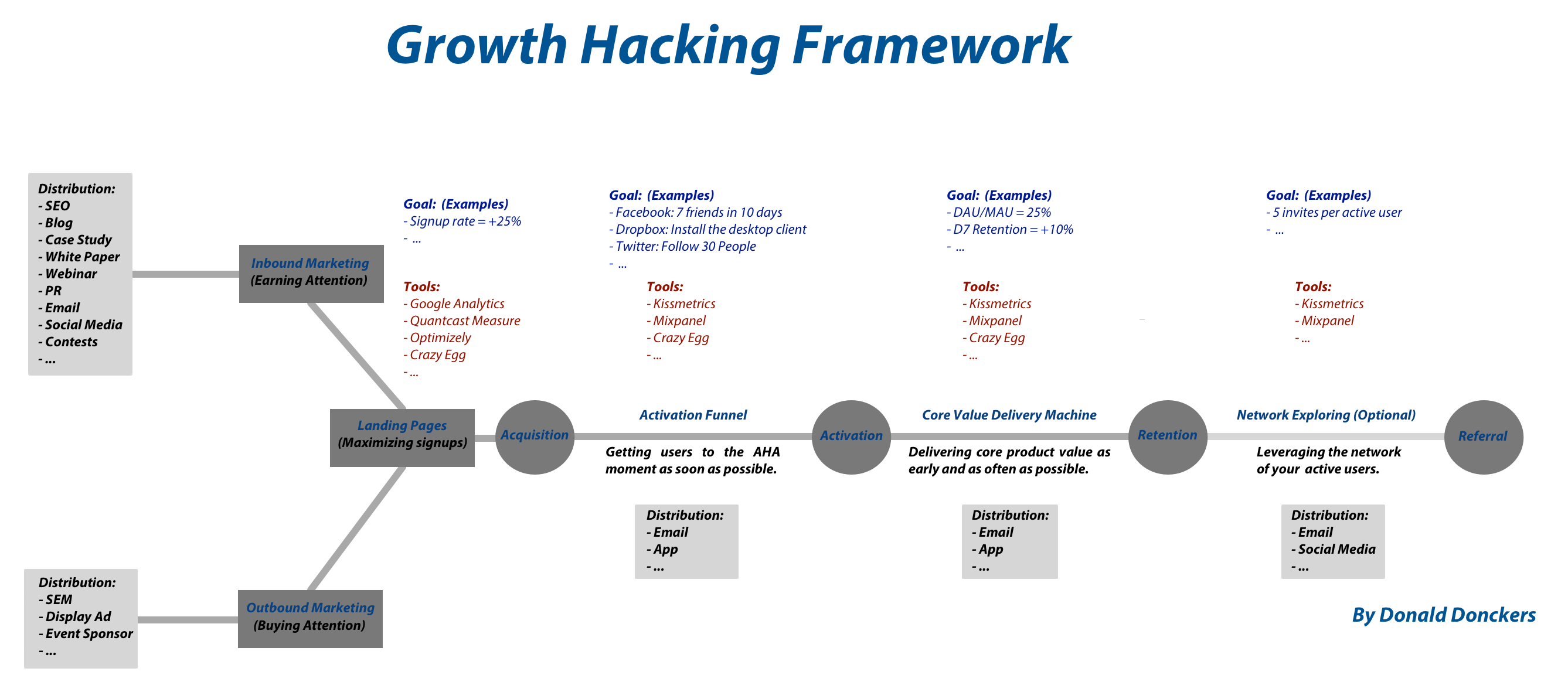The phrase “growth hacker” was coined by Sean Ellis in 2010. According to him, A growth hacker is not a replacement for a marketer. A growth hacker is not better than marketer. A growth hacker is just different than a marketer.
A growth hacker’s main goal is growth. With digital transformation being considered by businesses as a means to future proof their online presence, working on the ideal online strategy to sustain and grow the online presence is the main marketing activity for any business.
A hacker is a person who is more concerned with achieving an objective than following a prescribed process or methodology. In other words, hackers focus more on what needs to be achieved rather than how it should be acheived. Hackers have to be innovative and need to take risks by trying out what seems to be right.
Growth hackers utilize analytical thinking, product engineering and creativity to significantly increase their company’s core metric(s). As Sean Ellis said, A growth hacker is just a different marketer, the difference is not in the goal (which is more business and branding) but the difference is in the tools and the tackles and the media the growth hacker uses to achieve this goal. Moreover, it is more about the mindset rather than the tools. Furthermore, growth hacking is not a new practice, just a new term. Every SEO has always worked on improving the search presence and improve the overall web presence by applying knowledge and creativity . Every SEO has also been using analytics to work on every next strategy to forge ahead.
Hence, every SEO is a growth hacker but growth hacking is not only SEO. Growth hacking is not only about optimizing the search presence but optimizing every online presence to achieve the goal of increasing no. of users and making content viral.
According to @andrewchen :
Growth hackers are a hybrid of marketer and coder, one who looks at the traditional question of “How do I get customers for my product?” and answers with A/B tests, landing pages, viral factor, email deliverability, and Open Graph. On top of this, they layer the discipline of direct marketing, with its emphasis on quantitative measurement, scenario modeling via spreadsheets, and a lot of database queries. If a startup is pre-product/market fit, growth hackers can make sure virality is embedded at the core of a product.

(Image Source: http://www.donckers.co/startup-marketing-a-guide-to-growth-hacking)
Jim Young, co-founder of Hot or Not and founder of Perceptual Networks, says,
“Growth hackers view the whole business, from the top to the bottom, as an experiment. They need to be able to tinker with everything.” From outbound messaging to user experience, a top to street-level understanding of the business is critical for a growth hacker to be successful.
The main goal of marketing has always been more customers and how to find them and reach out to them.
Growth hacking is all about creating a good online presence and understanding the user behaviour and then try to reach out to the maximum no. of users via various platforms available online or offline. There is no formula or a prescribed path to achieve the goal. Every business needs to work out an individual strategy and chalk out the path for the growth hacking journey differently. It is not a onetime activity but an ongoing process.
Every growth hack strategy creates earned and owned digital assets, in the form of websites, social media accounts, blogs, email lists, online authority, thought leadership in the form of discussions and comments made via a valid company id, etc. Hence, money spent on growth hacking is more of an investment rather than an expenditure.
Largely, the following steps are a guideline for the whole growth hacking process:
- Generate ideas and work on a strategy.
- Organize and prioritize
- Test
- Analyse
- Optimize
- Rinse & repeat
Hence, a growth hacker needs to be creative, curious and also know how to work on data. It is not a completely marketing profile but a person who has a flair for marketing and also can manage technical stuff in the form of understating how websites work and how the internet works. Jesse Farmer says, “Good growth hackers have a deep understanding and curiosity of the how internet works. A good growth hacker will read Nudge and Predictably Irrationality and see possible growth hacks.” Jim Young, co-founder of Hot or Not and founder of Perceptual Networks says, Growth hackers are just “geeks who are human”.
May 2, 2016




